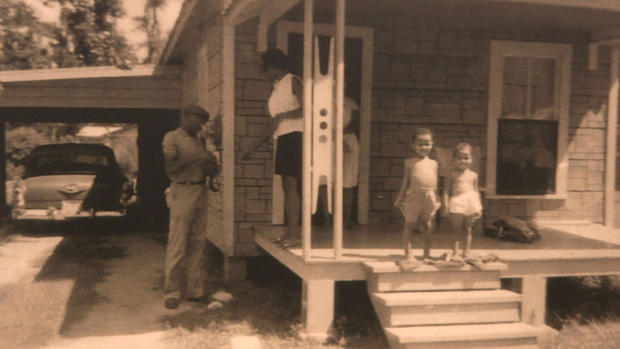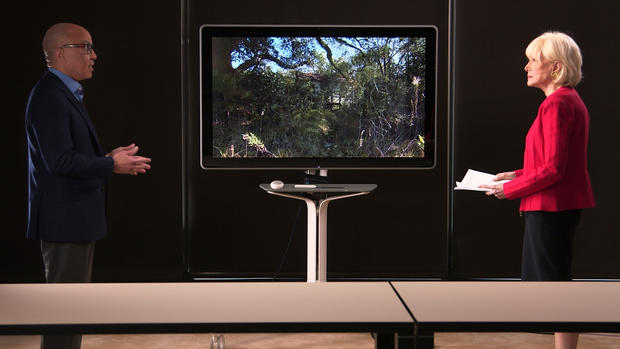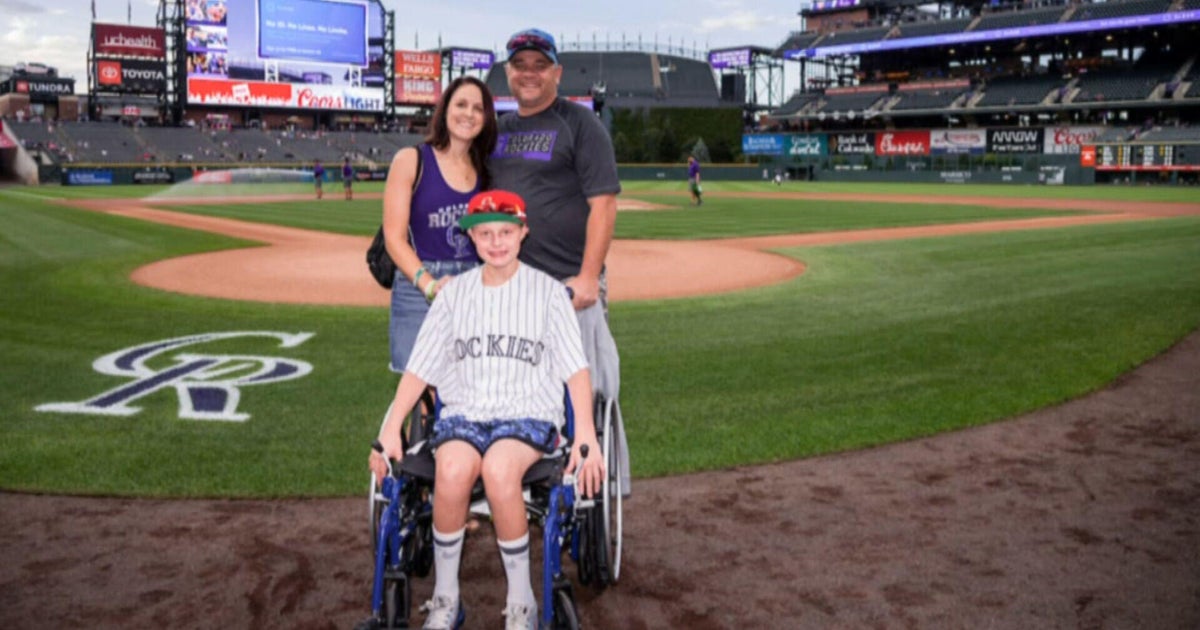Ford Foundation president Darren Walker returns to his Texas roots
Nestled behind overgrown shrubs and clearly long-abandoned, Darren Walker's first childhood home in rural Ames, Texas was still instantly recognizable to him.
Its modest two rooms and porch unlocked memories for Walker of an upbringing where, he explained, money was scarce, love was abundant, and education was valued above all else.
The son of a single mother, Walker was one of the first children in the country to enroll in "Head Start," a national program created by then-President Lyndon Johnson to combat poverty through investment in early education. It proved to be a pivotal opportunity that Walker never forgot.
"It was where I first opened a book," Walker told 60 Minutes. "It was where I learned the A, B, Cs, where I began to understand the construction of the sentence, all sorts of fundamental things that were so important to my learning… and it all started with Head Start."
The Head Start program grew out of research that was originally funded by the Ford Foundation. Now as the foundation's president, overseeing a $14 billion endowment, Walker told 60 Minutes correspondent Lesley Stahl that under his leadership, the mission of every foundation grant is fighting inequality.
"Inequality is the greatest harm to our democracy because inequality asphyxiates hope," Walker told Stahl.
Raised in the segregated South, inequality is a lived experience for Walker. He told 60 Minutes about accompanying his mother to the predominantly White county seat of Liberty, Texas, where she would point out a "lynching tree" in front of the courthouse.
"She told me, as many Black parents do, to remind children, Black children, of the consequences of injustice and what has happened to our people over time," Walker said.
Even though the visit was virtual, Walker found himself choking up at a few points, thinking back on the obstacles he faced as a child, and the many kids he grew up with who were not as fortunate as he was to escape from poverty and prejudice.
When Stahl and producer Shari Finkelstein began working on this story more than a year ago, they planned to interview Walker in Ames. The pandemic forced the team to find a new way to capture the remarkable trajectory of Walker's life.
"We felt visiting Ames with Walker was such an important element of our story that we had to figure out some way to be there with him once the trip we'd planned had to be canceled," Finkelstein said. "We felt that having a live video feed from these locations that had been so important to him was the next best thing, and we were willing to jump through lots of logistical hoops to make it happen."
Finkelstein worked with Walker over Zoom to identify the correct locations using Google Street View and then hired a local camera crew to trace the route and livestream the video back to New York for Stahl and Walker to see and talk about in real-time.
Among the stops on the virtual tour were two of Walker's childhood homes, the church where he attended "Head Start," his great-aunt's chicken coop where he helped feed the chickens, and The Dairy Queen he frequented on special occasions.
"I think it says something about America that a poor, Black, gay boy from Ames, Texas, could dream, and his dreams could be realized, and today he leads the Ford Foundation," Walker said to Stahl. "And this is why I am so grateful for the privilege of being born in this country, and why I am so determined that this country do better at delivering on the potential of America for those boys and girls who are the young Darren Walkers today."
The video above was produced by Keith Zubrow and Sarah Shafer Prediger. It was edited by Sarah Shafer Prediger.





